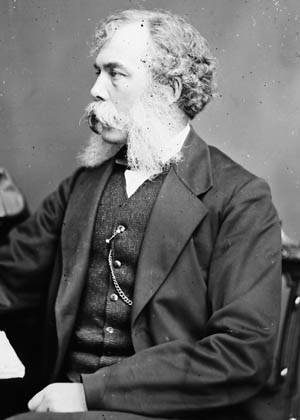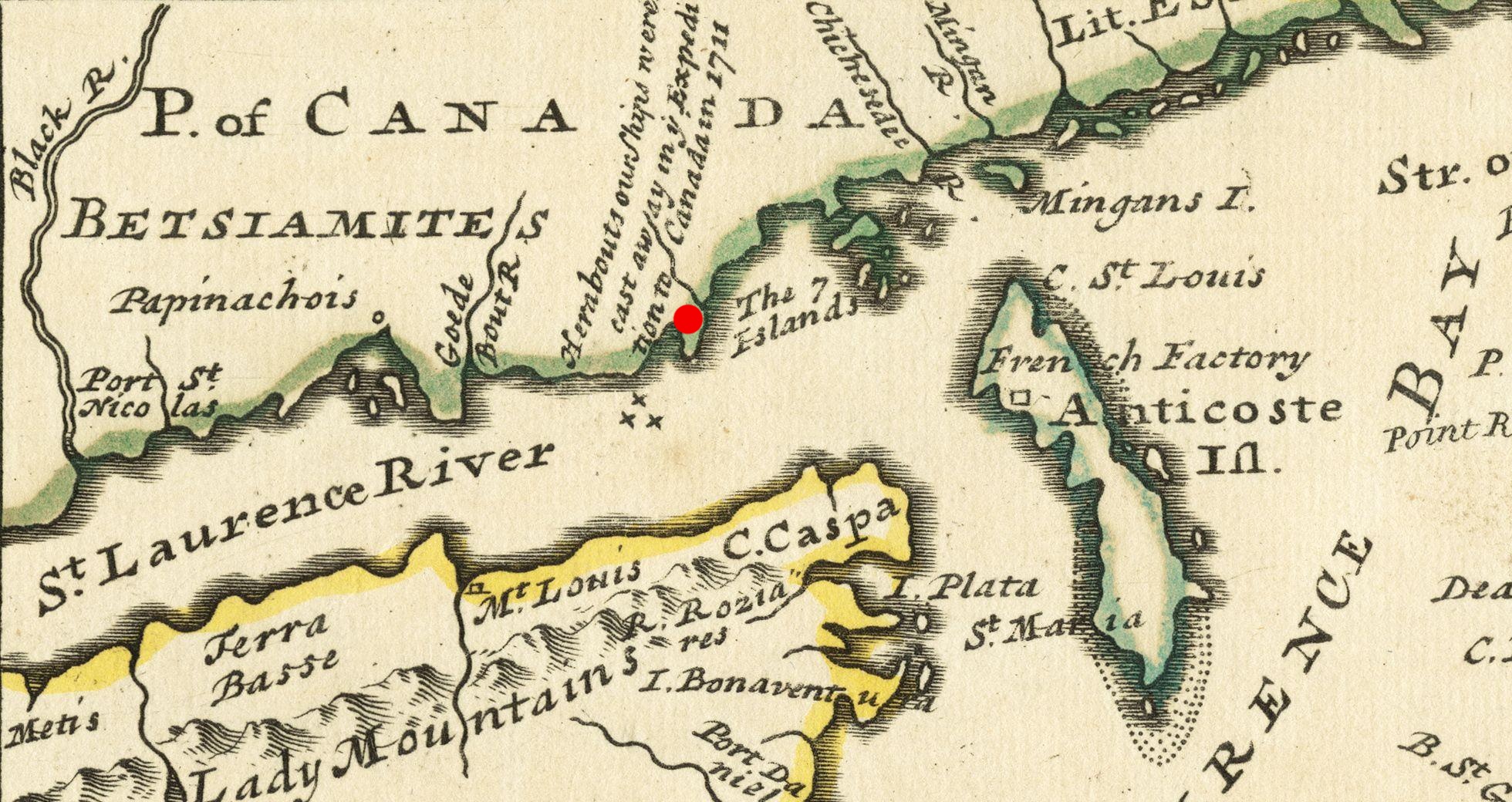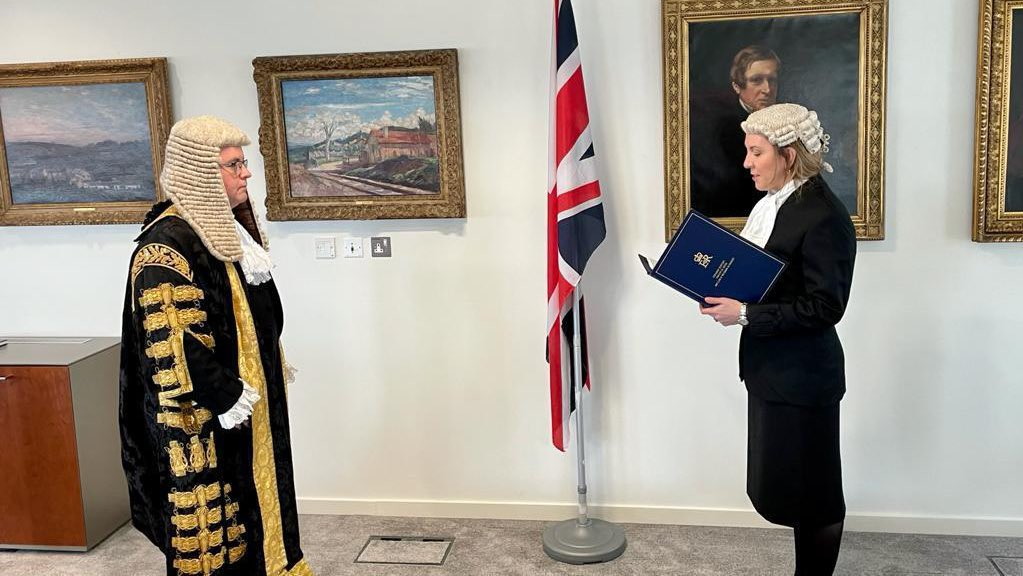|
1878 Quebec General Election
The 1878 Quebec general election was held on May 1, 1878 to elect members of the 4th Legislative Assembly for the Province of Quebec, Canada. The result was a hung parliament, with no party having a clear majority. Only one seat divided the two major parties, the Quebec Conservative Party and the Quebec Liberal Party. The balance of power was held by two Independent Conservatives. The incumbent premier, Henri-Gustave Joly de Lotbinière, was able to form a minority government with the support of the Independent Conservatives, even though the Conservative Party had one seat more than the Liberals. Political events The election was called in unusual circumstances. On March 8, 1878, the Lieutenant Governor of Quebec, Luc Letellier de Saint-Just, dismissed the Conservative premier, Charles Boucher de Boucherville, in a dispute over proposed railway legislation. The Lieutenant Governor then appointed Joly de Lotbinière, the leader of the Liberals, as premier. Since the ... [...More Info...] [...Related Items...] OR: [Wikipedia] [Google] [Baidu] |
4th Legislative Assembly Of Quebec
The Fourth Legislature of Quebec was the provincial legislature of Quebec, Canada that existed from 1878 to 1881, following the general election of 1878. The 1878 election was called by Premier Henri-Gustave Joly de Lotbinière, leader of the Quebec Liberal Party, after he had been installed in office by the Lieutenant Governor Luc Letellier de St-Just. The Lieutenant Governor had dismissed the former Conservative Premier, Charles Boucher de Boucherville, over a dispute about railway legislation proposed by the Boucher de Boucherville government. Since the Liberals did not have a majority in the Legislative Assembly, Joly de Lotbinière called an election immediately. The election resulted in a hung parliament, with neither party having a majority in the Legislative Assembly. Joly de Lotbinière was able to stay in office for one year with a minority government, supported by two Independent Conservatives, but lost a confidence vote in 1879. The Quebec Conservative Party l ... [...More Info...] [...Related Items...] OR: [Wikipedia] [Google] [Baidu] |
Single-member District
A single-member district or constituency is an electoral district represented by a single officeholder. It contrasts with a multi-member district, which is represented by multiple officeholders. In some countries, such as Australia and India, members of the lower house of parliament are elected from single-member districts, while members of the upper house are elected from multi-member districts. In some other countries, such as Singapore, members of parliament can be elected from either single-member or multi-member districts. History in the United States The United States Constitution, ratified in 1789, states: "The House of Representatives shall be composed of Members chosen every second Year by the People of the several States...Representatives...shall be apportioned among the several States which may be included within this Union, according to their respective Numbers." In other words, the Constitution specifies that each state will be apportioned a number of representa ... [...More Info...] [...Related Items...] OR: [Wikipedia] [Google] [Baidu] |
1878 Elections In Canada
Events January * January 5 – Russo-Turkish War: Battle of Shipka Pass IV – Russian and Bulgarian forces defeat the Ottoman Empire. * January 9 – Umberto I becomes King of Italy. * January 17 – Russo-Turkish War: Battle of Philippopolis – Russian troops defeat the Ottoman Empire. * January 23 – Benjamin Disraeli orders the British fleet to the Dardanelles. * January 24 – Russian revolutionary Vera Zasulich shoots at Fyodor Trepov, Governor of Saint Petersburg. * January 28 – In the United States: ** The world's First Telephone Exchange begins commercial operation in New Haven, Connecticut. ** ''The Yale News'' becomes the first daily college newspaper in the U.S. * January 31 – Turkey agrees to an armistice at Adrianople. February * February 2 – Greece declares war on the Ottoman Empire. * February 7 – Pope Pius IX dies, after a 31½ year pontificate (the longest definitely confirmed). * February 8 – ... [...More Info...] [...Related Items...] OR: [Wikipedia] [Google] [Baidu] |
4th Quebec Legislature
The Fourth Legislature of Quebec was the provincial legislature of Quebec, Canada that existed from 1878 to 1881, following the general election of 1878. The 1878 election was called by Premier Henri-Gustave Joly de Lotbinière, leader of the Quebec Liberal Party, after he had been installed in office by the Lieutenant Governor Luc Letellier de St-Just. The Lieutenant Governor had dismissed the former Conservative Premier, Charles Boucher de Boucherville, over a dispute about railway legislation proposed by the Boucher de Boucherville government. Since the Liberals did not have a majority in the Legislative Assembly, Joly de Lotbinière called an election immediately. The election resulted in a hung parliament, with neither party having a majority in the Legislative Assembly. Joly de Lotbinière was able to stay in office for one year with a minority government, supported by two Independent Conservatives, but lost a confidence vote in 1879. The Quebec Conservative Party l ... [...More Info...] [...Related Items...] OR: [Wikipedia] [Google] [Baidu] |
List Of Political Parties In Quebec
The following is a list of all political parties in the Canadian province of Quebec. Parties represented in the National Assembly Other registered parties Other parties authorized by the Director-General of Elections: Unregistered parties * ''Gauche Socialiste'' (never registered) Historical parties that won seats in the National or Legislative Assembly * ''Action démocratique du Québec'' 1994–2012 * ''Action libérale nationale'' 1934–c. 1939 * ''Bloc Populaire Canadien'' 1943–1949 * ''Ligue nationaliste canadienne'' 1908–1916 * ''Fédération du Commonwealth Coopératif'' (CCF) 1939–1955 * ''Labour candidates and parties in Canada#In Quebec, Parti ouvrier'' 1890–1931 * ''Conservative Party of Quebec (historical), Parti conservateur du Québec'' 1850–1935 * Equality Party (Quebec), ''Parti égalité''/Equality Party 1990–2013 * ''Parti créditiste'' or ''Ralliement créditiste du Québec'' 1970–1990 (various names) * ''Parti national populaire'' 1975� ... [...More Info...] [...Related Items...] OR: [Wikipedia] [Google] [Baidu] |
Timeline Of Quebec History
This article presents a detailed timeline of Quebec history. Events taking place outside Quebec, for example in English Canada, the United States, Britain or France, may be included when they are considered to have had a significant impact on Quebec's history. * 1533 and before * 1534 to 1607 * 1608 to 1662 * 1663 to 1759 * 1760 to 1773 * 1774 to 1790 * 1791 to 1840 * 1841 to 1866 * 1867 to 1899 * 1900 to 1930 * 1931 to 1959 * 1960 to 1981 * 1982 to present See also * List of Quebec general elections * History of Quebec * History of North America * List of years in Canada * List of Quebecers * Quebec politics * Timeline of Montreal history *New France External linksQuebec History Chronologies1524-2003: From New France to Modern QuebecThe 1837 Rebellions(in French) National Assembly historical data(in French) Chronologie de l'histoire du Québec(in French) (in French) Rond-point : Histoire du Québec(in French) L'influence amérindienne sur la société canadienne d ... [...More Info...] [...Related Items...] OR: [Wikipedia] [Google] [Baidu] |
Politics Of Quebec
The politics of Quebec are centred on a provincial government resembling that of the other Canadian provinces, namely a constitutional monarchy and parliamentary democracy. The capital of Quebec is Quebec City, where the Lieutenant Governor, Premier, the legislature, and cabinet reside. The legislature — the Parliament of Quebec — is unicameral, consisting of the Lieutenant Governor and the National Assembly, which has 125 members. Government is conducted based on the Westminster model. Political system The British-type parliamentarism based on the Westminster system was introduced in the province of Lower Canada in 1791. The diagram at right represents the political system of Québec since the 1968 reform. Prior to this reform, the Parliament of Québec was bicameral. Lieutenant Governor * asks the leader of the majority party to form a government in which he will serve as Premier * enacts the laws adopted by the National Assembly * has the power to veto. Premier * a ... [...More Info...] [...Related Items...] OR: [Wikipedia] [Google] [Baidu] |
List Of Premiers Of Quebec
This is a list of the prime ministers of the province of Quebec since Canadian Confederation in 1867. Quebec uses a unicameral (originally bicameral) Westminster-style parliamentary government, in which the prime minister is the leader of the party that controls the most seats in the National Assembly (previously called the Legislative Assembly). The prime minister is Quebec's head of government, while the king of Canada is its head of state and is represented by the lieutenant governor of Quebec. The prime minister picks a cabinet from the elected members to form the Executive Council of Quebec, and presides over that body. Members are first elected to the legislature during general elections. General elections must be conducted every four years from the date of the last election, but the premier may ask for early dissolution of the legislative assembly. An election may also happen if the Governing party loses the confidence of the legislature, by the defeat of a supply bill ... [...More Info...] [...Related Items...] OR: [Wikipedia] [Google] [Baidu] |
1875 Quebec General Election
The 1875 Quebec general election was held on July 7, 1875, to elect members of the 3rd Legislative Assembly for the Province of Quebec, Canada. The Quebec Conservative Party, led by Charles-Eugène Boucher de Boucherville, defeated the Quebec Liberal Party, led by Henri-Gustave Joly de Lotbinière. The election was the first one held under the new ''Quebec Elections Act'', passed by the de Boucherville government to replace the pre-Confederation elections law. The new law provided for the secret ballot in Quebec elections for the first time. Under the pre-Confederation elections law, each voter had been required to publicly declare their vote to the elections officials, a form of open ballotting. Franchise and qualification Right to vote The right to vote in elections to the Legislative Assembly was not universal. Only male British subjects (by birth or naturalisation), aged 21 or older, were eligible to vote, and only if they met a property qualification.''The Quebe ... [...More Info...] [...Related Items...] OR: [Wikipedia] [Google] [Baidu] |
Casting Vote
A casting vote is a vote that someone may exercise to resolve a tied vote in a deliberative body. A casting vote is typically by the presiding officer of a council, legislative body, committee, etc., and may only be exercised to break a deadlock. Examples of presiding officers who hold casting votes are the speaker of the House of Commons in the United Kingdom and the president of the United States Senate (an ex-officio role of the vice president of the United States). Use within a legislative body In some legislatures, a casting vote may be exercised however the presiding officer wishes. For example, the vice president of the United States may exercise their casting vote when the Senate is evenly divided according to their own personal beliefs; by virtue of the vice president's political leanings and affiliations, the vice president's political party is able to serve as the majority party in the Senate and elect one of their own to serve as Majority Leader. In some other l ... [...More Info...] [...Related Items...] OR: [Wikipedia] [Google] [Baidu] |
Clerk Of The Crown In Chancery
The Clerk of the Crown in Chancery in Great Britain is a senior civil servant who is the head of the Crown Office in Chancery, Crown Office. The Crown Office, a section of the Ministry of Justice (United Kingdom), Ministry of Justice, has custody of the Great Seal of the Realm, and has certain administrative functions in connection with the courts and the judicial process, as well as functions relating to the electoral process for House of Commons elections, to the keeping of the Roll of the Peerage, and to the preparation of royal documents such as warrants required to pass under the royal sign-manual, fiats, Letters Patent (United Kingdom), letters patent, etc. History The position evolved from the mediaeval office of Chancery (medieval office)#In England, the Chancery. The first individual known to be designated as Clerk of the Crown in Chancery was Benedict Normanton in 1331. After 1384, it became common for two persons to hold the clerkship in two separate offices, a ... [...More Info...] [...Related Items...] OR: [Wikipedia] [Google] [Baidu] |





